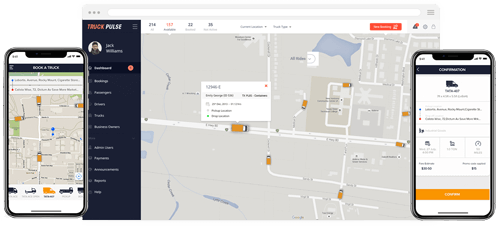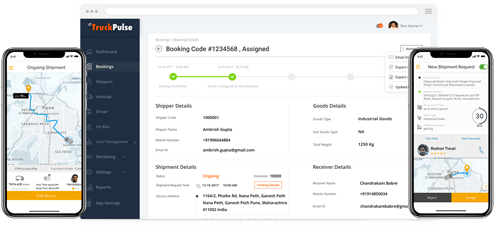Blockchain is one of the hottest buzzwords doing the rounds in almost every industry at this moment. But ask anyone what blockchain means, how it works, or what its utility is and the response will usually be along the lines of “It has something to do with bitcoin.” Yes, bitcoin is easily the most well-known application of the blockchain technology but blockchains aren’t just restricted to that or any other cryptocurrency for that matter. To understand the technology’s vast potential, it is necessary that you first gain knowledge of what the technology is and how it operates.
What is Blockchain Technology and How Does It Work?
Blockchain is a distributed digital ledger; a peer-to-peer network that keeps a comprehensive digital record of transactions between parties. It is an open system that could record any sort of transaction in a verifiable way through the use of cryptography. The standout feature of blockchains is that information is never stored in a single and centralized database; rather it is stored in fragments (i.e. in blocks of data) in multiple locations. Each data block is linked to the previous block which means that all the blocks are eventually ‘chained’ together. Moreover, each and every data block that is added to the chain is time stamped, unique and encrypted. This makes every data block, and hence the blockchain, tamper-proof and unalterable. The information stored in the chain thus becomes trustworthy and is accepted as ‘genuine’ by anyone who has access to the chain. However, while users cannot hack in or tamper with the data, they can inspect, access and make additions to the chain at any time.
A blockchain’s functioning is simple. Say, for example, person A wants to make a payment to person B. The transaction is given an online representation as a block. The block is then broadcast to each and every member or ‘party’ of the network. The network members then approve the transaction as valid. Following the approval, the block is added to the chain and eventually, money moves from A to B. A transparent and verifiable record of the transaction is thus created. This record stays put in the system and creates a public and permanent trail of information pertaining to a chain of transactions.
The Need for Blockchain in Supply Chain and Logistics
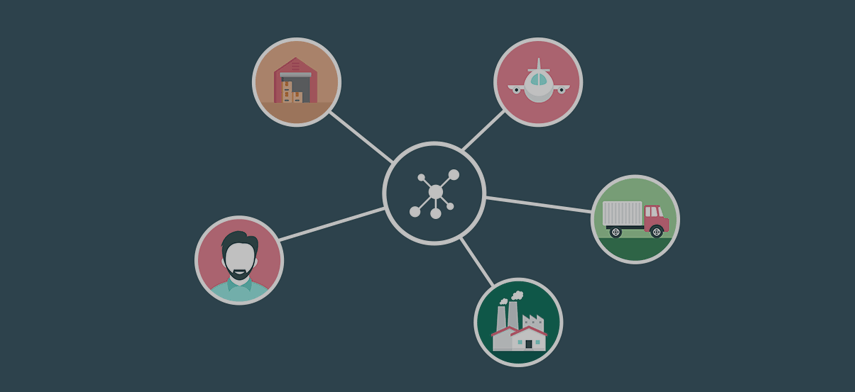
When trade and commerce were largely local activities, like say in the 1920s, supply chains were quite simple. But modern supply chains are quite complex. A major contributing factor is the globalization of trade. As trade and commerce have grown into truly global phenomena, managing supply chains have become increasingly difficult and logistical efficiencies have become crucial for the same.
The international shipping industry carries out about 90% of world trade every year. However, the logistics behind the trade is extremely complicated because it involves multiple parties. These parties often have conflicting interests, different priorities and they use diverse systems to track the shipments.
For example, an estimate suggests that there are no less than 500,000 trucking companies operating in the USA . The involvement of such a high number of stakeholders in the supply chain leads to the creation of issues such as low transparency and unstandardized processes. Besides, technology adoption levels too would fluctuate widely within the industry. Another major issue is the over-reliance on manual processes; primarily due to a combination of regulatory mandates and self-inflicted stagnancy. Most operators still rely on paper-based documentation to fulfill customs requirements. This, in turn, makes it extremely difficult to track the status of shipments at every point on the supply chain. Tracking the provenance of goods also becomes more complicated. As a result, friction in global trade increases exponentially.
Blockchains though could help deal with these frictions and enhance the efficiency of logistical processes. The logistics industry is one of the many industries in which blockchain technology has gained traction as a remedy for eternally existent pain points. Also, it is one of the few to have instantaneously obvious benefits of the technology’s application and integration in its processes. The primary reason is that blockchains are particularly useful for simplifying complex and fragmented processes and there is no dearth of those in this industry. The following points would help you gain an insight into the utility of blockchain in logistics as well as in supply chains.
- Unlocking Value in Logistics
Persistent problems in global trade logistics and supply chains such as procurement, freight tracking, the provenance of goods, lack of transparency, customs processes, payments, counterfeit products, etc., have created a fragmented and highly competitive logistics industry. As a result, there is a considerable amount of trapped value in the industry. But that could still be unlocked with the application of blockchain in logistics as these persistent problems could be tackled with greater efficiency by integrating blockchain in global trade logistics.
- Transparent and Ever-Accessible Data
Utilizing blockchain in supply chain would enhance the transparency and accessibility of data for relevant supply chain stakeholders. The intrinsic security mechanism of the blockchain would enhance mutual trust between stakeholders and encourage them to share information with one another; an invaluable catalyst for the logistics industry to flourish.
- Provenance Tracking of Goods and Increased Traceability to Tackle Counterfeit Products
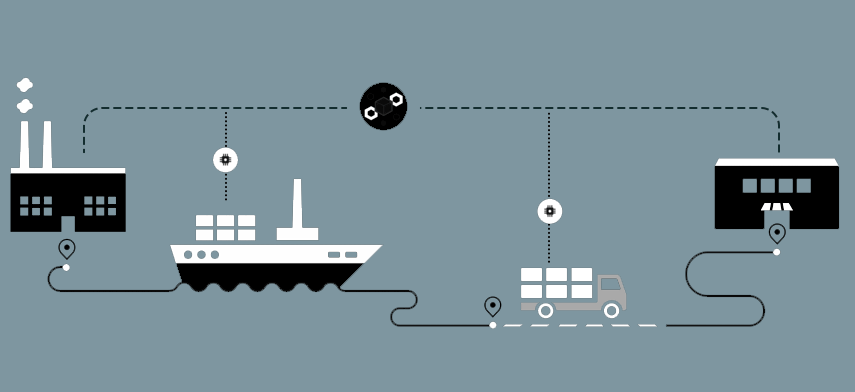
The threat of counterfeit products could be tackled with greater certainty and authority because of provenance tracking of goods, which would have previously been hard to accomplish.
Each party in the blockchain knows the source of origin of each asset (the asset could be any product or raw material or even money). They know who owned the asset at what time and when it was transferred to the next member (block) of the chain. Provenance tracking makes supply chains more responsible, sustainable and keeps them honest.
- Benefits of Automation
Blockchains could also achieve cost savings for the supply chain stakeholders by making logistical processes leaner and highly automated. And the most obvious consequence of automation is the creation of a reliable, efficient and error-free system.
- Acceleration in Physical Flow of Goods
Logistical operations would become increasingly visible and they could be predicted with greater accuracy. The reduction in ambiguity and the resultant increase in efficiency of delivery systems would automatically speed up the physical flow of goods.
- Payments are Made Easier and More Secure
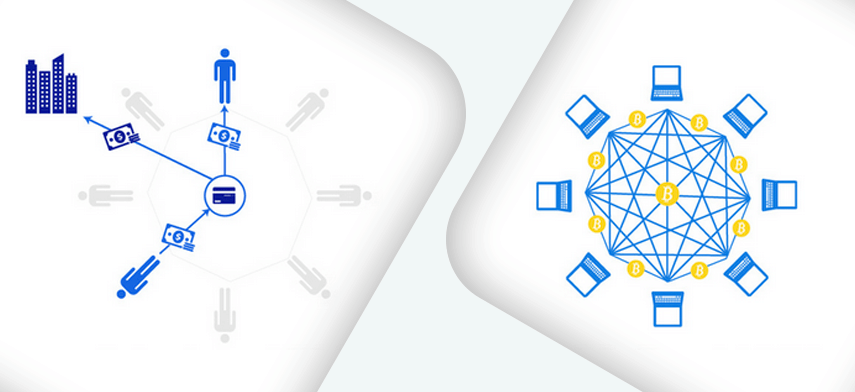
Traditional payment processors levy hefty transaction charges and take up at least a few days to complete a fund transfer. Blockchain transactions though take place instantly, cost much lesser than their traditional counterparts.
And if that isn’t reason enough to integrate payments with blockchain technology, blockchain transactions are extremely secure. Moreover, the employment of smart contracts could automate the payment process and ensure that payments and deliveries are made at almost the same time.
How is Blockchain Transforming Trucking, Logistics, and Freight?
- Elimination of Middlemen by Employing ‘Smart Contracts’
Smart contracts are self-executing jobs that are coded via the blockchain and are executed when certain specified conditions are met. For example, if a company wishes to pay a shipper when the product reaches its destination, it can program a smart contract which will automatically release the payment when the delivery of the product to the specified location has been verified through the blockchain. Smart contracts could eliminate administrative processes, reduce costs and make the process error-free.
- Better Freight Tracking
With on-demand and same day delivery requests on the rise, truckers and other freight companies are under pressure to innovate. While a lot of trucking companies have implemented tracking technology, it is difficult to scale this technology to meet consumer demands; even more so when it comes to authentication. Using blockchain for data authentication would mean that the entire network would validate the data and make it fraud-safe.
- Tracking Vehicle Performance History
When a business wishes to buy a second-hand delivery vehicle, the vehicle’s past performance and its detailed maintenance history could be authenticated by the blockchain. This information is of great help for businesses in making the optimum purchase decision.
- AI, Internet of Things (IoT) and Blockchain to Determine Freight Costs Efficiently
When synergized with AI and IoT, blockchain has tremendous utility as a capacity monitoring mechanism. If trucks are equipped with IoT sensors, shippers can determine the space taken up in a shipment. As the cost of shipping freight is often dependent on cargo volume, this information would help shippers determine the freight cost more accurately. All this information would be transmitted to the blockchain and an immutable record would be created.
- IoT and Blockchain for Vehicle to Vehicle (V2V) Communication
Companies can utilize IoT and blockchain to facilitate V2V communications. V2V communications enable multiple delivery vehicles to create a team and communicate with one another. This has a positive impact on fuel efficiency and safety.
- Current Projects and Applications of Blockchain in Logistics and Supply Chains
IBM and Maersk have joined hands to create a global blockchain-powered network with the purpose of increasing efficiency in ocean freight. The system will digitize trade workflows and facilitate end-to-end shipment tracking. It allows every supply chain stakeholder to view the movement of goods through the supply chain. They can also view the status of customs documents, bills of lading, etc. And considering that there are more than 50,000 merchant ships
currently operating in the global shipping industry, this system can produce major gains.
Global retail giant Walmart uses blockchain to track its pork sales in China. The system allows Walmart to see and trace where each piece of pork has come from, the meat’s processing and storage, also its sell-by date. In case of a product recall, the company can also identify the concerned batches and their buyers.
For the purpose of thwarting the threat of Blood diamonds’ and fake jewels, international diamond brand De Beers has also resorted to blockchain to keep track of precious stones right from the time when they were mined up to the point they were sold to a customer.
Integrating blockchain in supply chain has the potential to break traditional supply chain barriers. And according to a World Economic Forum estimate , that could boost global GDP by 5% while increasing global trade by 15%. For every logistics business to survive and grow in the forthcoming future, integration of blockchain in logistics a non-negotiable. Get in touch with a reputed and innovative logistics software solution provider who can help you do the same and build your logistics brand efficiently.
Author's Bio

